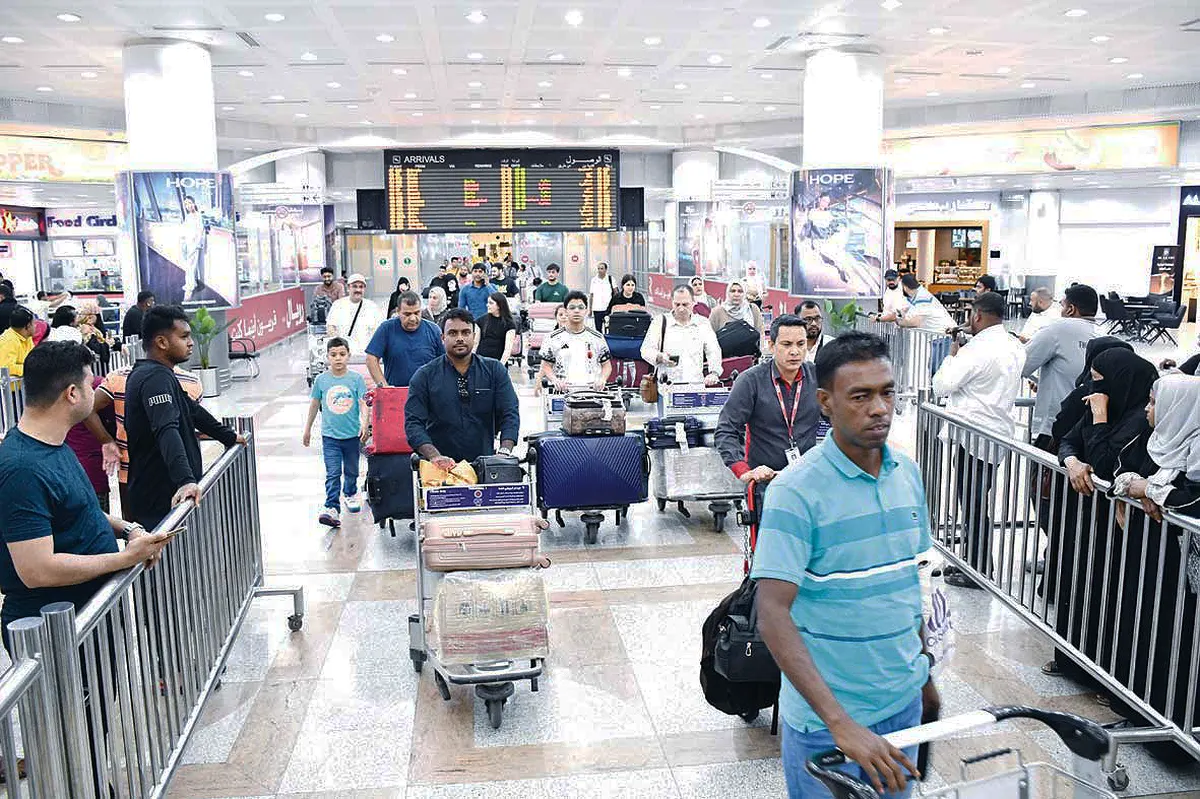06/09/2025
06/09/2025

“These are unsafe public networks involving multiple users, with the number of people connecting possibly exceeding 200 at the same time,” he stated. He explained that the presence of such a number of users on a single network may expose those connected to technical risks related to fraud and hacking through the transmission of links, photos or videos containing malicious material that can hack the smart devices of any traveler who opens them without realizing the risks they contain. Regarding the methods employed by hackers, Al-Harbi explained that they use several techniques to ensure access to the data of people connected to these networks. “These include sending unknown links, personal photos or even bank-related links, in addition to public videos, hence, the importance of not opening or receiving any material or links from unknown sources,” he asserted. Associate Professor at Kuwait College of Science and Technology Dr. Basil Al- Othman pointed out that at some airports, a free network often appears with an attractive name such as ‘Free_WiFi’ or ‘Airport_WiFi’. “Some travelers, without thinking, press the connection button, reassured by the prospect of a fast, free service,” he revealed.
He explained that this network may have been created by a cyber attacker sitting just meters away, turning travelers’ phones or computers into valuable sources of information. He continued, “once you connect to this network, the attacker can intercept unencrypted data or redirect you to fake pages asking you to enter your email and password. Within moments, your personal and sensitive data are transferred to the attacker’s device, while you think you are simply using free internet.” He indicated that while teaching cybersecurity courses at the College, he ensures the students become familiar with network analysis tools, which can read such data like Wireshark, Aircrack-ng and Kismet. “This aims to help students understand hacking mechanisms and how attackers exploit weak encryption or use fake access points (Evil Twin),” he elaborated.
He believes that such cyber training enhances technical defense capabilities. He emphasized that connecting to public networks should only be done in cases of absolute necessity. Regarding the dangers of open Wi-finetworks in some airports, Al-Othman said they may facilitate the interception of user traffic and the detection of unencrypted data. “Fake networks could be created with names similar to official ones to deceive the public. Furthermore, devices with automatic connection settings may unintentionally link to other unsafe networks near the traveler’s location,” he added. Information Technology and Cybersecurity Consultant Eng. Hussein Al-Nakas stressed the importance of travelers not compromising personal data and sensitive information stored on their smart devices, especially when transferring money or booking hotels using free and anonymous Wi-fi networks abroad. Al-Nakas said such networks may be operated by hackers, who can cause legal and financial problems for travelers by implicating them in money laundering or other issues related to blackmail and defamation after stealing their personal data and taking control of their mobile devices.
Regarding the methods of hacking smart devices, Al-Nakas explained that hackers use several approaches, such as creating free ‘fake’ networks to lure travelers. “Once connected, travelers may unknowingly make calls or conduct financial transactions, in addition to receiving malicious links and videos sent by hackers,” he disclosed. He indicated that hacking travelers’ smart devices may allow attackers to seize banking data, personal information, and even photos in civil identification cards and passports. He said these networks are called ‘phantom trap’ networks, where travelers’ data, passwords and bank account details fall under hackers’ control, turning an enjoyable trip into a financial and legal nightmare. He urged travelers arriving in the country to use private networks, activate international roaming services abroad, or verify with airport staff the official network for the airport they are in. He stressed that protecting travelers’ data is essential to avoid becoming easy prey for hackers.
On measures to mitigate risks, Al-Othman recommended disabling file sharing and automatic connections in public places, and using only the HTTPS protocol when browsing websites to ensure data encryption. He advised avoiding the entry of sensitive data, such as passwords or banking details, while connected to public networks, and instead rely on private networks like mobile data or personal hotspots. Al-Nakas pointed out that accessing fake Wi-fi networks at airports may expose travelers to legal prosecution, as it happened with a Kuwaiti traveler who once conducted money transfer using a fake network at an airport abroad. “He was summoned by the relevant authorities upon entering the country after it was discovered that the transaction had been carried out via a complex fraudulent network,” he revealed. Al-Harbi shared his personal experience of being hacked through WhatsApp, when hackers gained access to a friend’s device and obtained important files. The hackers then defrauded Al-Harbi’s contacts using artificial intelligence, sending audio recordings and text messages impersonating him. He stressed that every smart device user must remain cautious and vigilant.


